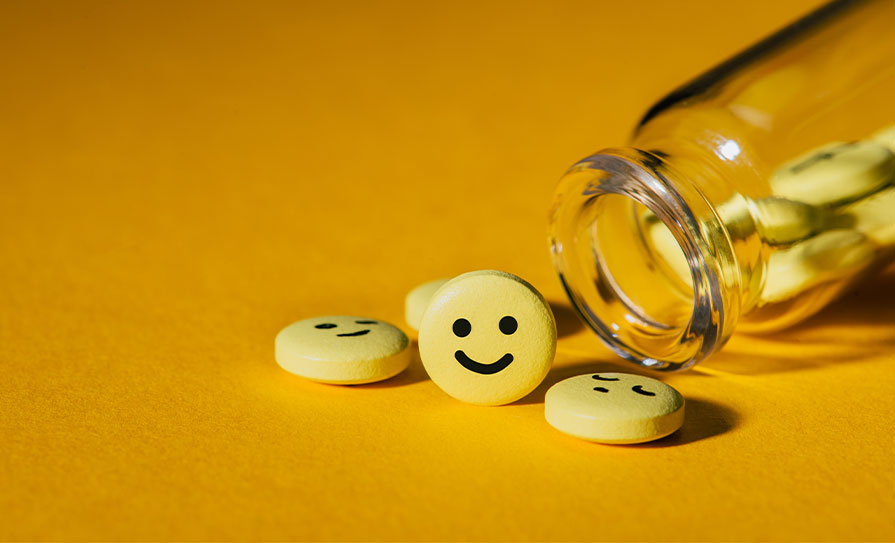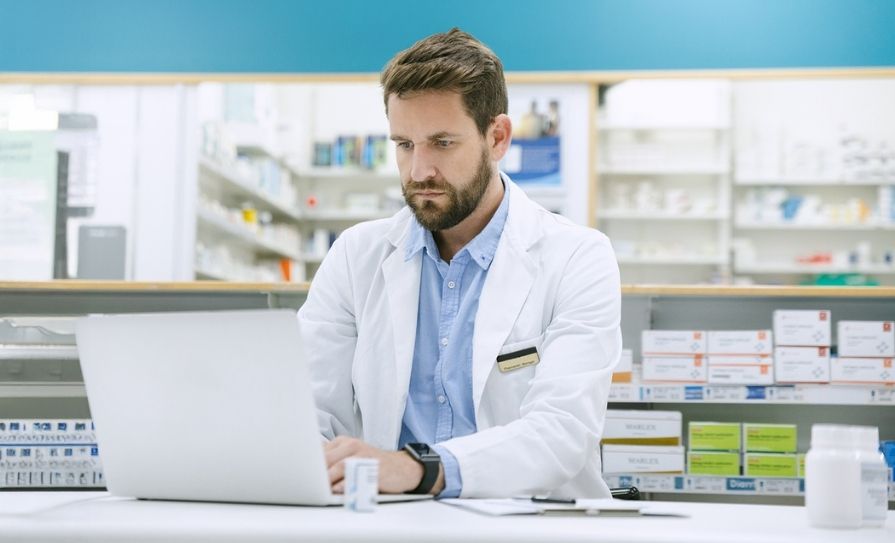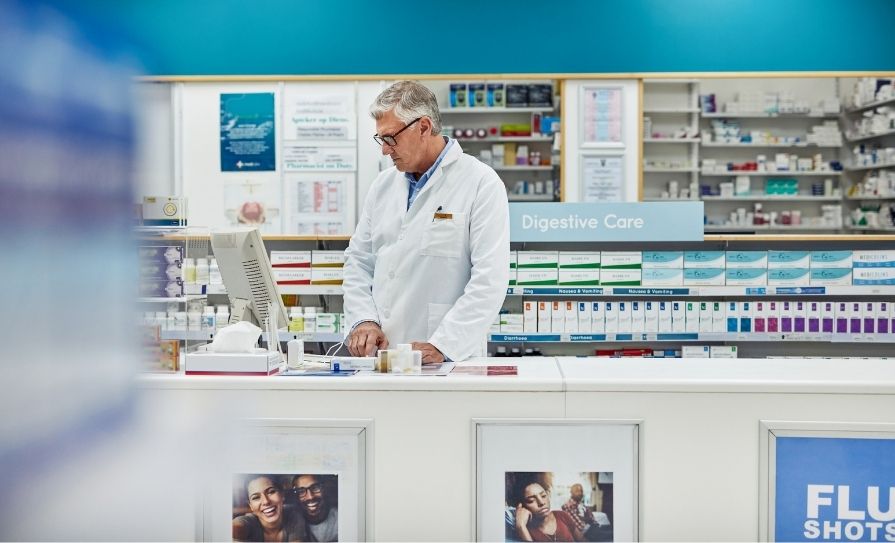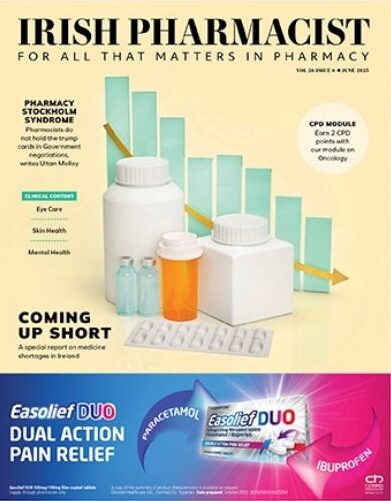The current approach to treating depression has failed and bearing in mind the recent evidence on the efficacy of depression medications, a new approach is needed, writes Terry Maguire.
Clinical depression is a very serious mental condition bringing untold misery to millions and, being strongly linked to suicide and depression, if not properly managed can be fatal, and too often is. Yet we are not good, it seems, at managing clinical depression and it’s not really anyone’s fault; rather, it’s a failure in a systems approach that has attempted to standardise treatment, something generally good in itself, but in depression, sadly, maybe making things worse. The paradigm of current management is now a set of guidelines and in the UK, this is the NICE guidelines. These are very good, comprehensive and detailed but for a busy GP or non-medical prescriber, they are challenging to comply with when your time availability is poor and you are faced with a potentially depressed patient.
There seem to be three emerging problems with our current approach. Firstly, we have such a low bar when it comes to diagnosing depression that perhaps a high percentage of those currently with a diagnosis may not have the condition at all. Most people on a series of bad days over a two-week period can end up with a depression diagnosis, when they really only have low mood that will quickly resolve if left alone with reassurance. The second issue is that the medicines used to treat depression, more specifically the SSRIs and SNRIs, are generally ineffective when used to treat mild-to-moderate depression, only being effective in more severe cases of the condition, which might be those cases that are more rightly identified as the truly clinically depressed. And linked to this is the third issue that antidepressant drugs used widely, if not indiscriminately, have some pretty nasty side-effects that can significantly reduce quality of life and may even hold back recovery.
It seems that at this point in time, our approach to the management of depression is facing such a challenge on these three issues that in coming years we might look back and wonder how we had been so cruel to those suffering and in need. The solution is to invest, to support better mental resilience, not in the medical model, but in a societal model. The solution is in strong communities, resilient individuals and supported families. I’m saying nothing new and this lack of investment in mental health has been recognised for years.
A recent paper in the journal Molecular Psychiatry has attracted considerable attention, in that it seems to have finally put to bed the theory that depression is caused by chemical imbalance, a lack of serotonin in the brain. The chemical imbalance theory comes from the 1970s, if not before, and the interest in this recent paper I find surprising, as 20 years ago this theory was being challenged as much too simplistic.
The fact that medicines, the SSRIs, could replace a deficiency of this neurotransmitter in the brain was fanciful, yet was a great marketing line for the drug companies who made fortunes on fluoxetine (Prozac) and then a series of others in the SSRI class. To say that the human brain is a complex organ is to make the ultimate understatement. But what is clear from the Molecular Psychiatry paper is that on five levels, there is now conclusive proof that the neurotransmitter serotonin is not deficient in the brains of people with depression.
If a lack of serotonin was the basis of clinical depression, then it would be expected that there would be less serotonin in the blood and cerebrospinal fluid in depressed patients; there is not. Likewise, there would be less of the metabolite 5H1AAA, a by-product of serotonin breakdown in the neural synapses; there is not. It would be expected that tryptophan, the amine precursor of serotonin, given as a supplement, would rectify the deficiency; it doesn’t. And finally, there would be upgrading of the number of post-synaptic serotonin receptors through activation of the SERT gene, the gene responsible for building these receptors; there isn’t.
I have been deeply annoyed by a series of deaths by suicide in young people in West Belfast over recent weeks
The SSRIs are much less effective than is appreciated and the placebo effect in depressive conditions for these drugs is about 80 per cent. Just giving the depressed patient some care and attention and some follow-up can itself be very therapeutic. The lack of clinical efficacy was first demonstrated back in 1998 by Irving Kirsch and Gary Sapirstein and from the published data, they identified a 75 per cent placebo effect in depression. There was an obvious and understandable backlash from the psychiatrists and clinicians who had based careers on these drugs. Kirsch and Sapirstein used the Freedom of Information Act to get the unpublished trials that the drug companies had on file, and included them in a second meta-analysis. The follow-up paper was published in 2008 and showed a much worse outcome for the drugs, so much so that Kirsch stated in an interview that the drugs were largely ineffective in mild-to-moderate depression.
But SSRIs are not just sugar-pill placebos; they do have pharmacological effects. And these effects are responsible for sometimes debilitating side-effects. Patients can often report living in ‘limbo’ in a ‘twilight world’ where they just don’t care, but they can get through. The drugs have a significant social impact — for example, they can severely effect sexual activity and it impact on relationships. Withdrawal from SSRIs can be severe and must be done under medical supervision, therefore anyone reading this must not stop their SSRIs, but speak to their GP or mental health professional before attempting to do so. A recent article by P Moskowitz in The Nation covers the list of side-effects and reports the personal impact of being on SSRIs, and he suggests we deserve a fuller picture of both the benefits and dangers of antidepressants. The writer Johann Hari in his book Lost Connections gives a very personal account of fighting depression and his need to address his antidepressant use as a means of moving on.
I have been deeply annoyed by a series of deaths by suicide in young people in West Belfast over recent weeks. These deaths are not reported, and rightly so, but they are a barometer of our failure as a society when it comes to supporting those with mental health problems. And where that just sounds like a cliché, the resolution is in doing the hard things, like destigmatising mental health; making the necessary mental health service investments; recognising and supporting those who are struggling; but also supporting personal resilience. We all need to see more creative ways for individuals to adopt the Take Five Message. Our personal mental health is so much better when we give more, are more curious, keep learning every day, take more exercise, and connect with our communities, families and friends. There is a need to more widely provide Cognitive Behavioural Therapy (CBT) and other ‘talking therapies’ which are effective and which build the personal resilience that tragically so many people lack.
REFERENCES
1. https://www.nice.org.uk/guidance/ ng222. updated in June 2022.
2. https://www.nature.com/articles/ s41380-022-01661.
3. https://www.thenation.com/article/ society/ssri-antidepressant-side-effects/.
4. https://www.amazon.co.uk/Lost- Connections-Uncovering-Depression- Unexpected-ebook/dp/B075RTJV67.
5. https://www.publichealth.hscni.net/ publications/take-5-steps-wellbeing-english-and-11-translations.







